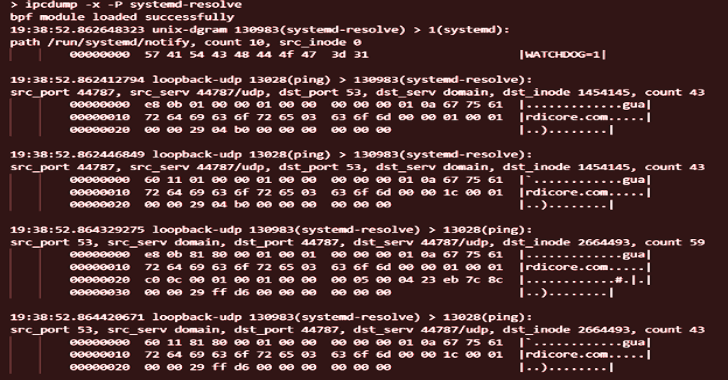Etl-Parser is a pure Python 3 parser library for ETL Windows log files. ETL is the default format for ETW as well as the default format for the Kernel logger.
etl-parser has no system dependencies, and will work well on both Windows and Linux.
Since this format is not documented, we merged information from the blog of Geoff Chappel and reverse engineering activities conducted by Airbus CERT team.
What is ETL and why is it a pain to work with? Consider ETL as a container, like AVI is for video files. Reading ETL is similarly frustrating as reading an AVI file without the right codec.
etl-parser tries to solve this problem by including parsers for the following well known log formats:
- ETW manifest base provider
- TraceLogging
- MOF for kernel log
etl-parser offers two scripts. The first script, etl2xml transforms all known ETL events into XML:
etl2xml -i example.etl -o example.xml
The second script, etl2pcap transforms network captures created through netsh into the pcap file format:
netsh start trace capture=yes
netsh stop trace
etl2pcap -i NetTrace.etl -o NetTrace.pcap
You can also use etl-parser as a library:
from etl.etl import IEtlFileObserver, build_from_stream
from etl.system import SystemTraceRecord
from etl.perf import PerfInfo
from etl.event import Event
from etl.trace import Trace
from etl.wintrace import WinTrace
class EtlFileLogger(IEtlFileObserver):
def on_system_trace(self, event: SystemTraceRecord):
“””Mof kernel message with Process Id and Thread Id”””
mof = event.get_mof() # Invoke MOF parser
def on_perfinfo_trace(self, event: PerfInfo):
“””Mof kernel message with timestamp”””
mof = event.get_mof() # Invoke MOF parser
def on_trace_record(self, event: Trace):
“””unknown”””
def on_event_record(self, event: Event):
“””ETW event this is what you search”””
# Choose the “parse_” function which corresponds to your event
message = event.parse_tracelogging() # Invoke TraceLogging parser
message = event.parse_etw() # Invoke Manifest based parser
def on_win_trace(self, event: WinTrace):
“””unknown”””
etw = event.parse_etw()
with open(“example.etl”, “rb”) as etl_file:
etl_reader = build_from_stream(etl_file.read())
etl_reader.parse(EtlFileLogger())
Installation
etl-parser is available from pip:
pip install etl-parser
Alternatively, you can install etl-parser using setup.py:
git clone https://github.com/airbus-cert/etl-parser.git
cd etl-parser
pip install -e .
Missing a parser?
If you encounter a parsing error, please open an issue on the Airbus CERT GitHub repository.
The EVTX log format is fairly well documented, with lots of libraries and tools available today. This is not true for ETL: at time of development, there is no significant open-source project that we know of and the ETL format is not well documented.
ETL is massively used by Windows system programmers to log useful artifacts:
C:\Windows\System32\WDI\LogFiles\BootPerfDiagLogger.etlC:\Windows\System32\WDI\LogFiles\ShutdownPerfDiagLogger.etlNetTrace.etlvianetshC:\Windows\System32\WDI\<GUID>\<GUID>\snapshot.etl- etc.
A lot of new APIs such as Tracelogging or WPP are based on ETW. These APIs are used extensively by Microsoft developers for Windows. Tracelogging is addressed by etl-parser, WPP will be addressed in a future release.
Microsoft offers a lot of consumers that create ETL traces, such as xperf.exe, logman.exe, netsh.exe, etc.
We believe it is a gold mine for DFIR analysts.
















.png)
